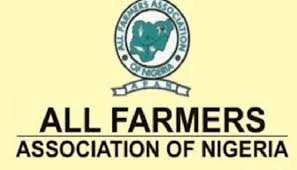The All Farmers Association of Nigeria (AFAN) has warned that the nation’s food security is under serious threat, citing insecurity, inflation, and climate change as major obstacles to agricultural productivity.
The association’s National President, Kabir Kebram, explained that farmers, especially in Nigeria’s food-producing regions, are struggling to cope with worsening conditions that could further push millions into hunger if not urgently addressed.
“Our food system is impaired for so many reasons. We have a lot of insecurity that is really bedeviling farmers, especially in the food basket areas. And then, suddenly, the purchasing power of our Naira, since the removal of subsidy, you know how it has become. And then, the effects of climate change,” Kebram told journalists.
He said the combined challenges have placed a heavy strain on food production. “So all these factors put together, they are threat factors to the attainment of food security or even food sufficiency,” he stressed.
Kebram emphasised that policies already in place must be backed with strong implementation to produce results. He called on the government to focus more on smallholder farmers, who make up the bulk of Nigeria’s food producers, by providing access to credit and subsidies that will encourage them to expand.
“The only thing is that we must implement our policies. We must work towards making our currency better. We must support the smallholder farmers to scale by giving them credit and subsidies. This is the only way people will go out. And, of course, you encourage them to do climate-smart production,” he added.
According to him, Nigeria must pursue both short-term and long-term solutions to improve productivity in line with its growing population. “So there are many, many factors and many ways you can optimise production to a level where it will be sufficient for now. And then in anticipation of the population that will rise or that is rising,” Kebram said.
He further clarified that the Federal Government’s responsibility is not to own or run farms but to create an enabling environment where farmers can thrive. “The Federal Government has no farm, or no government has any farm. So the Federal Government is to create the enabling environment for the smallholder farmers to work because they are now in the majority,” Kebram stated.
He explained that as mechanisation expands, smallholder farmers may gradually reduce in number, while larger-scale farmers and agribusinesses will grow. However, he noted that displaced farmers can find opportunities in food processing and related value chains.
“As the smallholder farmers contract, you get into agribusiness and can even become rich. There are many, many opportunities when you have a large population. The demand for food is high, and you can do a lot of good business in doing that. And you don’t have to be a farmer yourself,” he explained.
Recent reports estimate that about 31.8 million Nigerians are currently facing acute food insecurity, with projections showing that the situation could worsen if nothing is done. Rising inflation has pushed up the cost of food items across the country, making it harder for families to afford basic meals.
The AFAN president’s call is a reminder that Nigeria’s food crisis requires urgent and coordinated action from both government and stakeholders. With the right support for smallholder farmers, investment in mechanisation, and policies that address insecurity and climate change, the country has the potential to turn its population into a strength for food production and agribusiness growth.
